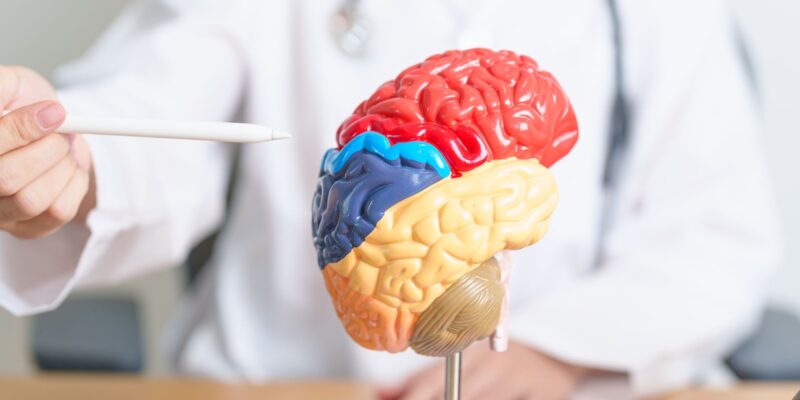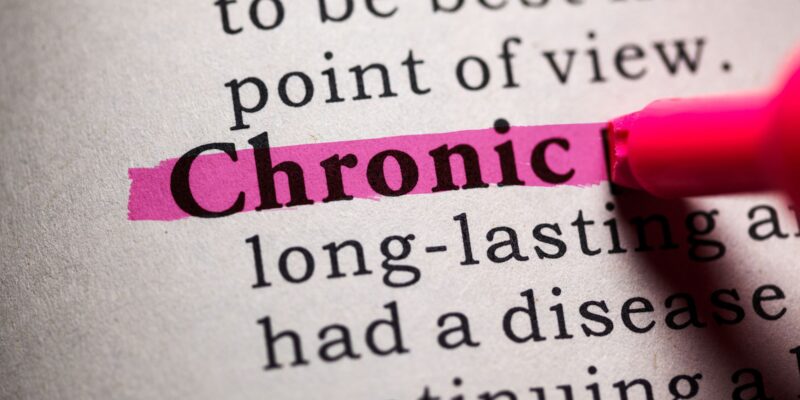Sleep isn’t just about feeling rested—it’s essential for brain function. Could your sleep struggles be…

Can Inner Ear Problems Cause Seizures?
Can problems in your inner ear really trigger seizures? The link between balance and brain activity may be closer than you think. Many people experience dizziness, vertigo, or disorientation and wonder if these symptoms could be signs of something more serious. While the inner ear primarily governs balance, its connection to the brain means that dysfunctions in this area can sometimes lead to neurological symptoms—including seizure-like episodes. If you’re experiencing these issues, it may be time to consult a neurologist in New Jersey.
Understanding the Inner Ear and Brain Connection
Your inner ear plays a vital role in balance and spatial orientation. It contains the vestibular system, which sends signals to the brain about your body’s position and motion. These signals help you stay balanced and coordinated. However, when the vestibular system malfunctions—due to infection, trauma, or other issues—it can send confusing messages to the brain. This miscommunication may cause symptoms like vertigo, dizziness, or even involuntary movements that resemble seizures.
So, can inner ear problems cause seizures? While the inner ear itself doesn’t directly cause epileptic seizures, disturbances in its function can sometimes lead to neurological conditions that may trigger seizure-like episodes. In some cases, symptoms of vertigo or disorientation can be misdiagnosed as seizures, or vice versa. That’s why thorough evaluation by a specialist is crucial.
Can Inner Ear Problems Cause Seizures?
Though rare, certain inner ear conditions can mimic or trigger neurological responses that resemble seizures. For example, vestibular migraines and conditions like Ménière’s disease can lead to confusion, balance loss, and visual disturbances. These symptoms are sometimes mistaken for partial seizures.
Additionally, individuals who have sustained head trauma affecting the inner ear may experience both vertigo and seizures. In such cases, integrated care—including traumatic brain injury treatment in New Jersey—can help manage both the vestibular and neurological aspects of recovery.
Types of Vertigo and How They Differ
Vertigo is more than just feeling dizzy—it’s a specific sensation that you or your surroundings are spinning or moving. Understanding the types of vertigo can help determine whether the issue is related to the inner ear or something more central in the brain.
So, what are the 3 types of vertigo?
- Peripheral Vertigo: Caused by inner ear issues like benign paroxysmal positional vertigo (BPPV) or labyrinthitis.
- Central Vertigo: Linked to problems in the brainstem or cerebellum, such as stroke or multiple sclerosis.
- Benign Paroxysmal Positional Vertigo (BPPV): A subtype of peripheral vertigo, often triggered by changes in head position.
Each type presents slightly different symptoms and requires unique approaches to treatment. Differentiating between them is essential for identifying whether the root cause is vestibular or neurological.
When to See a Neurologist
If you’re experiencing recurring vertigo, dizziness, or episodes that involve confusion or visual disturbances, it’s important to consult a specialist. A neurologist in New Jersey can conduct a full evaluation, including brain imaging and vestibular testing, to determine the cause of your symptoms.
For children exhibiting these symptoms, early intervention is key. A pediatric neurologist in New Jersey can help assess and diagnose any underlying neurological or vestibular issues. Neurology Center NJ is a leading provider of pediatric neurology in New Jersey, offering child-friendly diagnostics and care.
How to Prevent Seizures and Manage Symptoms
If you’re at risk for seizures—due to inner ear trauma, neurological conditions, or family history—there are proactive steps you can take. Here’s how to prevent seizures:
- Get Enough Sleep: Fatigue is a common seizure trigger.
- Manage Stress: Relaxation techniques and mindfulness can reduce neurological tension.
- Avoid Stimulants and Alcohol: These substances can worsen both vertigo and seizure susceptibility.
- Follow Your Treatment Plan: If prescribed medication, take it consistently and as directed.
- Know Your Triggers: Keeping a symptom diary can help you recognize patterns and avoid triggers.
Why Choose Neurology Center NJ
Neurology Center NJ offers comprehensive neurological care that spans both adult and pediatric needs. From advanced diagnostic tools to individualized treatment plans, our team is experienced in managing complex cases that may involve the overlap of vestibular and neurological symptoms.
Whether you’re dealing with neurological causes of sleep problems, seizures, or balance issues, our center provides sleep disorder treatment in NJ, seizure management, and expert care for dizziness and vertigo. Our patient-first approach ensures that you receive holistic support for your symptoms—from the first appointment through treatment and beyond.
Conclusion and Call to Action
Understanding the connection between the inner ear and brain function can be life-changing for those experiencing unexplained symptoms. While inner ear problems may not directly cause seizures, they can contribute to neurological confusion and should be evaluated by a qualified specialist.
If you or a loved one are dealing with unexplained vertigo, dizziness, or possible seizures, it’s time to get answers. Schedule a consultation with Neurology Center NJ today to meet with an expert neurologist in New Jersey and explore a clear path to diagnosis and healing.



